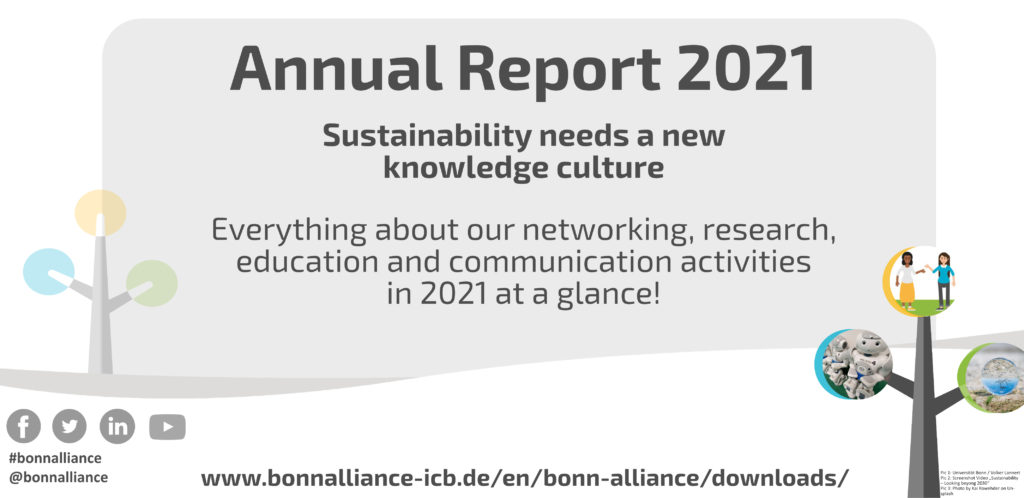
At COP23 in November 2017, the Bonn International Centre for Conflict Studies (BICC), the German Development Institute / Deutsches Institut für Entwicklungspolitik (DIE), the Bonn-Rhine-Sieg University of Applied Sciences (H-BRS), as well as the United Nations University Institute for Environment and Human Security (UNU-EHS) and the Center for Development Research (ZEF) joined forces to form the Bonn Alliance, under the leadership of the University of Bonn, in order to pool and strengthen knowledge and expertise in the field of sustainability research.
In 2021, the partners in the Alliance have increasingly addressed questions about the future development of sustainability agendas and cooperation: The UN 2030 Agenda for Sustainable Development, adopted in 2015, will need a successor in time; what could such a new framework look like, and what is the role of science in it and in its development process? How is science currently positioned to (a) address complex sustainability challenges (in terms of methods, processes, solutions and their communication, as well as teaching), and (b) what can science contribute to future policy frameworks, the processes of their creation and those of their implementation?
In the new program line “Sustainability – Looking beyond 2030” we give space to the topic of future sustainability agendas, while a new working group on “Alternative Sustainabilities” focuses on concepts and practices of sustainability that are still little considered in order to diversify the discourse in science, policy and practice.
Download and read the full Annual Report here.